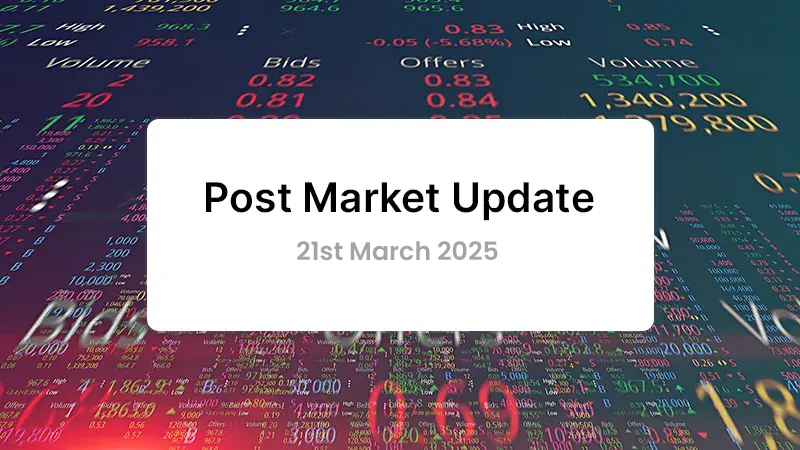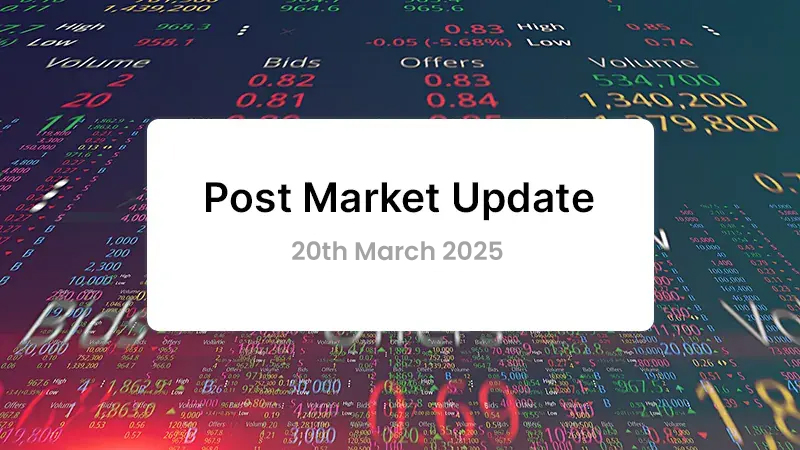
The year 2024 brought mixed fortunes for investors. While India’s benchmark stock indices soared approximately 8%, uncertainties loom as earnings growth in 2025 may slow due to persistent geopolitical concerns and the anticipated impact of US President-elect Donald Trump’s trade tariff plans. As a result, equities face potential headwinds, shifting attention toward the debt market, which also delivered 8% returns last year. In this evolving financial landscape, the contrasting dynamics of equity and debt markets hold key investment opportunities and challenges for the upcoming year.
Equity Market Outlook: Volatility Amid Global Tensions
Equity markets, traditionally the growth engine for portfolios, are expected to navigate a challenging environment in 2025. Geopolitical risks and inflationary pressures remain significant hurdles. Although global central banks began cutting interest rates in the latter half of 2024, India’s inflation, driven by sticky food prices, kept the Reserve Bank of India’s (RBI) monetary policy cautious. The Monetary Policy Committee (MPC) maintained high real rates, though it shifted to a “neutral” stance, providing flexibility for potential rate adjustments.
For equities, the elevated interest rates and global uncertainty could dampen corporate earnings growth, potentially affecting market sentiment. However, sectors such as technology, pharmaceuticals, and consumption-driven businesses may continue to perform well, driven by structural growth trends and resilient demand. Despite short-term challenges, long-term investors could still find opportunities in undervalued sectors and companies with strong fundamentals.
Debt Market: A Beacon of Stability
In contrast to the equity market’s volatility, the debt market offers a stable and predictable investment avenue. Fixed-income assets, particularly government bonds, have emerged as an attractive option for risk-averse investors. The RBI’s steady interest rate policy throughout 2024 provided a favorable environment for debt instruments, leading to capital appreciation and steady returns. The 10-year government bond yield started 2024 at 7.18% and closed at 6.75%, reflecting this stability.
India’s inclusion in prominent global bond indices like the JPMorgan Global Bond Index and Bloomberg’s emerging markets index has further boosted the debt market’s appeal. The upcoming inclusion in the FTSE Russell index in September 2025 is expected to attract additional foreign portfolio investment, enhancing liquidity and demand for Indian bonds.
Key Trends for Fixed-Income Investments in 2025
The year 2025 is anticipated to be constructive for the debt market, with policymakers likely focusing on supporting slowing economic growth. Experts predict that the RBI may cut interest rates by 50-75 basis points, which would benefit government securities and corporate bonds. As bond yields move inversely to prices, a decline in yields could result in capital gains for investors.
Moreover, the fiscal deficit for FY25 is projected at 4.9% of GDP, indicating continued fiscal discipline. Lower fiscal deficits generally translate to reduced government borrowing, which helps stabilize bond yields. Domestic demand for sovereign paper is expected to remain robust, driven by banks, mutual funds, insurance firms, and pension funds.
The insurance sector, in particular, has shown remarkable growth, contributing significantly to long-term demand for government bonds. Additionally, banks are likely to channel more funds into government securities due to slower credit growth, further supporting demand.
Navigating Equity and Debt in 2025
For investors, 2025 presents a nuanced decision-making environment. While equity markets offer the potential for higher returns, they come with increased risk due to global and domestic uncertainties. In contrast, the debt market provides a haven of stability, with government bonds yielding 6.8-7%—a compelling option in a world of volatile equities and diminishing returns from traditional assets like real estate and gold.
Asset allocation strategies should balance growth and stability. Tactical shifts within the bond market, such as a preference for short- or medium-term tenures, could optimize returns as the yield curve remains relatively flat beyond 10 years. Meanwhile, equity investors may need to adopt a selective approach, focusing on high-quality stocks with strong earnings potential and defensive characteristics.
The Road Ahead
The interplay between equity and debt markets will be shaped by factors such as inflation, geopolitical developments, and monetary policy actions. While the debt market appears poised for a strong start in 2025, equity investors must navigate volatility with caution.
Overall, a diversified portfolio with a prudent mix of equities and fixed-income instruments could help investors weather market uncertainties while positioning themselves for long-term growth. As the financial landscape continues to evolve, staying informed and agile will be crucial for capitalizing on opportunities in both asset classes.
Market this week
| 30th Dec 2024 (Open) | 03rd Jan 2025 (Close) | %Change | |
| Nifty 50 | ₹ 23,797 | ₹ 24,005 | 0.9% |
| Sensex | ₹ 78,638 | ₹ 79,171 | 0.7% |
Source: BSE and NSE
- The Indian equity market extended its winning streak for the second consecutive week, driven by robust foreign institutional investor (FII) inflows, strong auto sales data, and higher GST collections.
- Despite the positive momentum, part of the weekly gains was erased due to a sell-off on Friday.
- Nifty Auto index surged by 4%, Nifty Oil & Gas index rose 3.4%, Nifty Energy and FMCG indices added 2.4% each and Nifty Realty index declined 2.5%.
- FIIs were net sellers, offloading equities worth Rs 11,041.59 crore, while Domestic Institutional Investors (DIIs) remained net buyers, purchasing Rs 9,253.7 crore worth of equities.
Weekly Leaderboard
| NSE Top Gainers | NSE Top Losers | ||||
| Stock | Change (%) | Stock | Change (%) | ||
| ONGC | ▲ | 9.28 % | Wipro | ▼ | (4.74) % |
| Maruti Suzuki | ▲ | 9.08 % | Hindalco Inds | ▼ | (4.25) % |
| Eicher Motors | ▲ | 8.90 % | ICICI Bank | ▼ | (3.25) % |
| Bajaj Finserv | ▲ | 7.71 % | HDFC Bank | ▼ | (2.73) % |
| Bajaj Finance | ▲ | 7.23 % | Dr Reddy’s | ▼ | (2.65) % |
Source: BSE
Stocks that made the news this week:
- Vedanta reported a 3% year-on-year increase in aluminium production, reaching 614 kilotonnes in Q3 FY25, according to provisional updates. Mined metal output rose 3% sequentially to 265 kilotonnes, supported by better grades and higher production at Agucha and Zawar mines. Refined zinc production also improved 3% sequentially, reaching 204 kilotonnes during the quarter.
- Hero MotoCorp shares declined over 3% to Rs 4,159 on January 3, following weak December sales numbers. Over the last three months, the stock has fallen 25%, significantly underperforming the benchmark Nifty 50, which dropped 4% in the same period.
- Afcons Infra shares jumped 7% intraday on Friday after the company announced securing a Rs 1,000-crore order from DRDO. The stock hit a fresh high of Rs 570 before settling at Rs 553.90, up 3.61% by 12:30 PM on the NSE.














